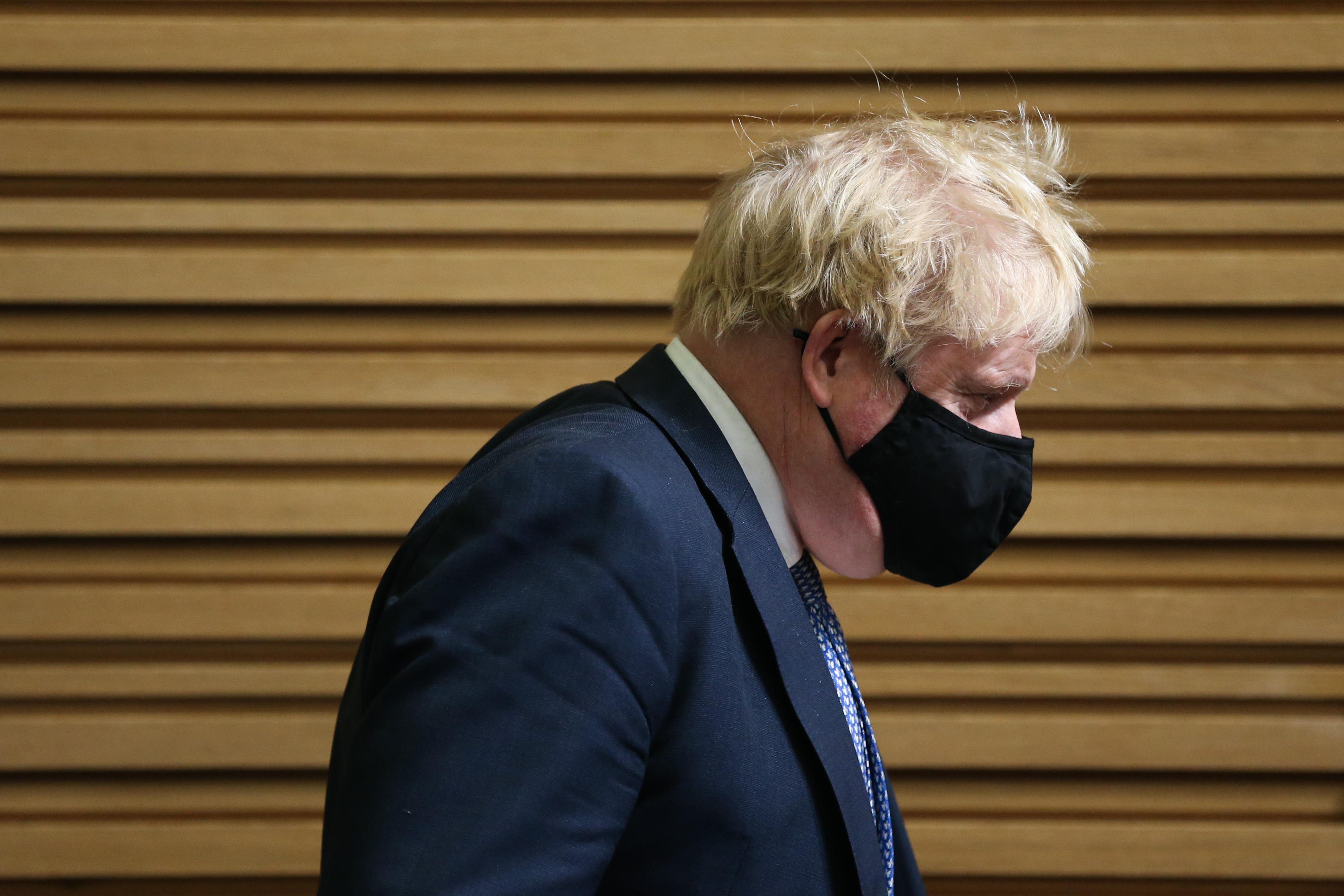Boris Johnson's downfall and a Britain in crisis
- By Tom Fowdy
 0 Comment(s)
0 Comment(s) Print
Print E-mail China.org.cn, July 15, 2022
E-mail China.org.cn, July 15, 2022

For a long time, Boris Johnson appeared to be a figure who defied political gravity and always seemingly landed on his feet despite a longstanding history of scandal and chaos in his midst. In 2019, he assumed leadership of the Conservative Party, having seen off the previous two leaders, David Cameron and Theresa May, in respective factional struggles owing to Brexit. Donning the simple slogan "Get Brexit Done" and wrapping himself up in right-wing populism, Boris romped to victory in a general election attaining the best result for the Conservative Party since Margaret Thatcher. His successes took swift advantage of a Labour Party that faced chaotic internal divisions and lacked the confidence of large portions of the British public.
Yet in many ways, all of these fanciful exploits by Boris were built on hot air, the same nationalistic jingoism that had been stalwart in bringing about Brexit in the first place, in which he played a key role. None of it was substantial in any way, with Brexit attaining its ethos amongst the British public through a sheer appeal to identity than promising actual results. For Boris, this was all about marketing something evidently self-defeating as a triumph, and seemingly it worked.
It is certainly not Brexit that has brought down his premiership. Boris Johnson's many visible flaws were for some time a key aspect of his public persona and appeal. While long derided by some, for others it gave him a distinct charm and character which allowed him to electorally bypass some of the more stringent image limitations the Conservatives often faced. How else, for example, did Boris become a two-term Mayor of London, a city which electorally is dominated by Labour voters and demographics? Yet as per the above, this persona might have been a useful asset in winning elections, especially in territories where Conservatives were never competitive (including the North of England), but when faced with a real crisis, all of these turned out to not work.
And it would be on that note, the COVID-19 pandemic, that ultimately sowed the seeds of his downfall. It was not, as per Brexit, the Prime Minister's disastrous mismanagement of the pandemic, surmounting to one of the worst death tolls in the world, that turned the public against him, but ultimately the charge of hypocrisy that the government had imposed unpopular COVID rules on the public, which they themselves did not keep.
Thus, it would come to be known as "Partygate," wherein Boris and his government were found to have broken their own imposed laws on gatherings and events, which would ultimately crater public confidence in Boris Johnson and deal him a wound he would not recover from. The breach in public trust was only compounded by a series of follow-on scandals that turned his own colleagues and MPs against him. The first vote of no-confidence saw 148 MPs vote against him, and while he procedurally survived, it was clear his position was de-facto untenable. The final straw proved to be a scandal surrounding Deputy Chief Whip Chris Pincher, who was accused of sexual assault in 2017, with the Prime Minister claiming he did not know of the incident when records showed he was briefed. The controversy triggered mass cabinet resignations, which would ultimately force his resignation.
It is undeniable that Boris will not be remembered for leaving Britain better than he made it. He leaves amidst an economy that is in a state of contraction, faces skyrocketing inflation, shrinking living standards, growing industrial unrest, pushes for separatism in Scotland, and a pandemic that has left over 181,000 people dead. As the competition gets underway to elect his successor, we can see what daunting challenges they have to deal with ahead of them.
Tom Fowdy is a British political and international relations analyst and a graduate of Durham and Oxford universities. He writes on topics pertaining to China, the DPRK, Britain and the U.S. For more information please visit:
http://www.china.org.cn/opinion/TomFowdy.htm
Opinion articles reflect the views of their authors, not necessarily those of China.org.cn.
If you would like to contribute, please contact us at opinion@china.org.cn.






Go to Forum >>0 Comment(s)